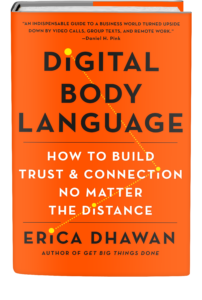
Image courtesy of Sura Nualpradid / FreeDigitalPhotos.net
– Will Rogers (Click to Tweet!)
How do you make sure you're constantly making forward progress?


Image courtesy of Sura Nualpradid / FreeDigitalPhotos.net
– Will Rogers (Click to Tweet!)
How do you make sure you're constantly making forward progress?

Tongpoonfoto | Dreamstime Stock Photos | Stock Free Images
– Albert Einstein (Click to Tweet!)
How have you used your creativity and imagination lately?

Image courtesy of Stuart Miles / FreeDigitalPhotos.net
– Unknown
What have you decided to let go that has helped you move forward?

Image courtesy of Ambro / FreeDigitalPhotos.net
Warren Buffet says that the number one key to success is communication skills and having conversations that show your curiousity, ambition, and expertise.
Communication skills increase your capital value by 50% in four areas: generosity, initiative, forward momentum, and transparency. Here are 4 ways to have great conversations:
1) Master the Hello and Goodbye: First, ask someone if they have a moment to speak. If they can't, thank them and create forward momentum. Instead of simply saying "Great speaking with you" or "I'll keep you posted on additional opportunities," establish yourself as professional and courteous and ask them "How can I follow up with you?"
2) Ask for Help (and sound smart while you do it): Be enthusiastic and ask for specific resources and guidance that will help you do your job better. When facing a challenge, ask, "do you have a template I should follow or people I should speak with?"
3) Get Feedback: Don't wait for the 6 month review to get feedback–ask your manager how he or she is feeling about your progress and what could be done differently. For a good script on asking for feedback, download my free Leadership Library below, with scripts, tools, and guidebooks.
4) Answer a Question (even if you aren't sure of the answer): There are plenty of ways to answer a question without lying or overtalking. Use your knowledge and experiences to add to the conversation. Someone else may build on your answer, giving you a chance to learn from another perspective.
What are other practices you use to have great conversations?

Vedran79 | Dreamstime Stock Photos | Stock Free Images
– Neale Donald Walsch
Which side of the "comfort zone" are you standing?

Image courtesy of Master isolated images / FreeDigitalPhotos.net
1) Understand your Assumptions: What are you asking and why are you asking it? What would you ask if you reversed your assumptions [i.e., When reimagining cars, what if you let go of your assumptions about drivers? Meet, driverless cars (thanks Google!)]?
2) Invite Openness: How do you invite others to help you think through the question? Instead of starting a question with "why not…" how about asking "what if…"?
3) Create Trust: Engage others so they feel they can be part of your questions. Ask: "How do you feel you are resonating with this question?" or State: "What I'm hearing you ask is…"
4) Stop being married to your questions: Practice asking more provocative questions: instead of "What's not working?", ask "If we were to achieve an outstanding service award, what would we celebrate"? (check the book Kill the Company by Lisa Bodell for more provocative questions).
5) Understand the role that questions play: Questions are meant to explore, spark, inspire–they don't solve the problem. They help uncover the key instruments that allow for solution generation. Start at questions and use the thread of dialogue, dissent and discovery to uncover the solution.
Copyright ©2024· Erica Dhawan, LLC. All Rights Reserved